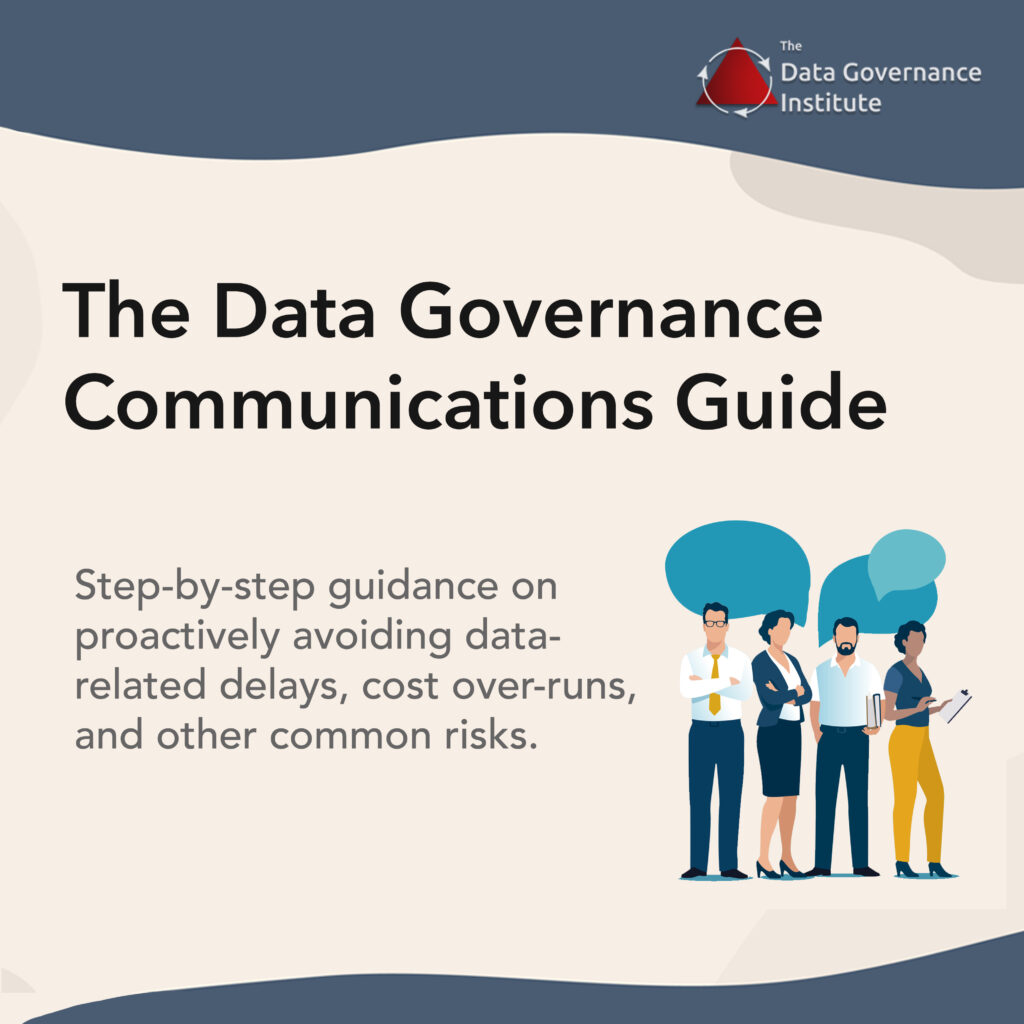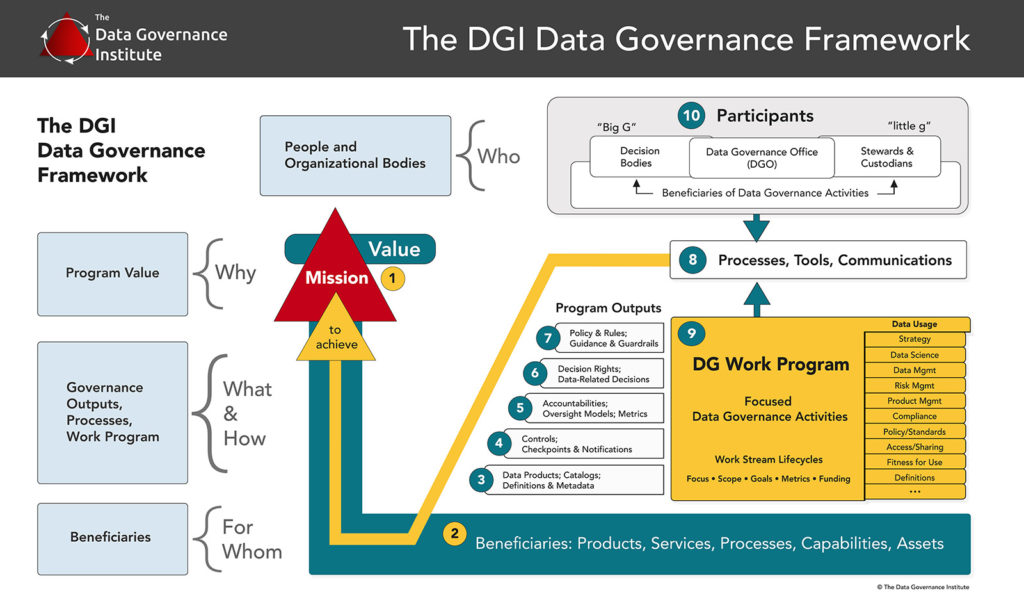One of the three most important jobs of a Data Governance program is to help resolve data-related issues. These may be conflicting data definitions, data usage concerns, or problems with how data is sourced, how it is integrated, how it is protected, or a myriad of other issues.

Data Governance programs are generally structured to allow an orderly and predictable issue escalation path for data issues that pulls together the right stakeholders at the right time with the right research and analysis, so they can make a decision that is right for the enterprise.
The DGI Data Governance Framework includes “Resolving Issues” as a key Governance process. Of course, every organization will decide how much structure and formality to bring to the process of resolving data-related issues.
Ideally, this process should be standardized, documented, and repeatable. It should be crafted in such a way to support regulatory and compliance requirements for Data Management, Privacy, Security, and Access Management. Record-keeping should provide a clear history of which stakeholders were involved in resolving an issue, what resources/analysis were used, and what alternatives were considered.



